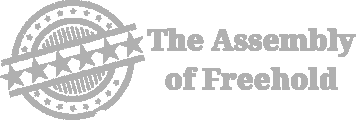CONNECTED
Attribute Cost: 1 Point/Level
Relevant Stat: Soul
The Connected Attribute represents a character’s close relationship with a hierarchy of some sort that grants them access to resources, respect, and privileges. Examples of such organisations include governments, powerful corporations, military units, feudal systems, organised crime rings, secret guilds and societies, and some religions.
The organisation selected should have moderate power within the game setting and the GM and player should discuss the proposed organisation before gameplay begins to ensure they are both on the same page regarding the organisation’s scope and importance. Connected should not be assigned if the selected organisation will not have a meaningful impact on the game and only makes appearances infrequently.
Connected is a relatively inexpensive Attribute because the benefits the connection provides always comes with strings attached. The character must follow the goals of the organisation in order to gain the use of its resources. The other members are assumed to be loyal to the organisation itself, not the Connected character. Followers with personal loyalty to the character are better represented by Companion (page 84) and Minions (page 109) Attributes, while resources that belong directly to the character are represented by Item (page 101) and Wealth (page 132) Attributes. These Attributes can blend with one another, of course. For example, the Prime Minister of Japan could have both a high Connected Attribute (representing their status and access to resources) as well as a number of Companions (those individuals personally devoted to the character, for whatever reason).
For campaigns in which all players belong to the same organisation that is central to the game (such as a secret society or crew of a galactic freighter company), the GM may decide that the Connected Attribute is not required. Consequently, this Attribute is optional; the GM may prefer to treat organisation membership as a background detail instead.
Since Connected measures absolute power that a particular position grants, many smaller organisations will only have a few Levels. A club or small business, for example, will usually have no more than three Levels.
ENHANCEMENTS
SIGNIFICANT POWER
The organisation to which the character is connected has significantly more influence within the game setting rather than just one with moderate power. In a high school comedy game, for example, the school’s autocratic student council might wield significant power (while in most settings it would be a completely trivial organisation and wouldn’t need the Connected Attribute).
GREAT POWER
Counts as 2 Enhancements (Attribute effectiveness reduced by 2 Levels). The organisation to which the character is connected has an important and diverse role within the game setting and provides the character with much larger advantages than one with only moderate power. For example, a criminal organisation like the Yakuza could be considered to have great power in a modern-day urban Japan setting but merely moderate power in a game about mystical demonologists.
- Level 1 Associated. Examples include a private or corporal in the army, an ordinary police officer, a Mafia connected guy, the class rep on a student council, or a junior employee in a corporation.
- Level 2 Respected. Examples include the boss of a small business, the head of a student council, a Yakuza soldier or Mafia wiseguy, a sergeant in the army, a knight’s squire, a police detective, a respected employee in a corporation, or the sheriff or priest of a small town.
- Level 3 Modest Authority. Examples include a lieutenant in the army, a junior executive in a large corporation, the mayor of a small town, a city councillor in a big city, a poor knight, an abbot of a monastery, or the deputy chief of police in a large police department.
- Level 4 Local Authority. Examples include a Mafia Captain, a departmental vice-president in a corporation, a knight with lands and followers, a junior congressional representative, or a middle-ranking army officer, such as a company commander (captain or major).
- Level 5 Regional Authority. Examples include a senior congressional representative, an army colonel in command of a regiment-sized force, a big-city mayor, a country baron, or a popular regional religious leader … all of which can exercise power over a sizeable area.
- Level 6 Provincial Authority. Examples include a senior vice-president in a corporation, a US senator, or a high-ranking army officer such as an army brigade or a divisional commander, the boss of a state-wide crime syndicate, or the major nobles or courtiers in a small kingdom.
- Level 7 National Authority. Examples include the president of a small nation, the king of a medieval kingdom, a senior member of the government in a powerful nation (such as grand vizier, secretary of defence, or the governor of a major US state or an imperial province).
- Level 8 International Authority. Examples include the leader of a powerful nation or a hierarchical world religion (such as the President of the United States or the Pope).
- Level 9 Planetary Authority. Examples include the ruler of the entire “known world” or planet, or senior members of the government or military in a multi-world power, such as admiral of the star fleet.
- Level 10 Extraplanetary Authority. Examples include the ruler of multi-world nation whose boundaries extend to other planets or even other dimensions.
